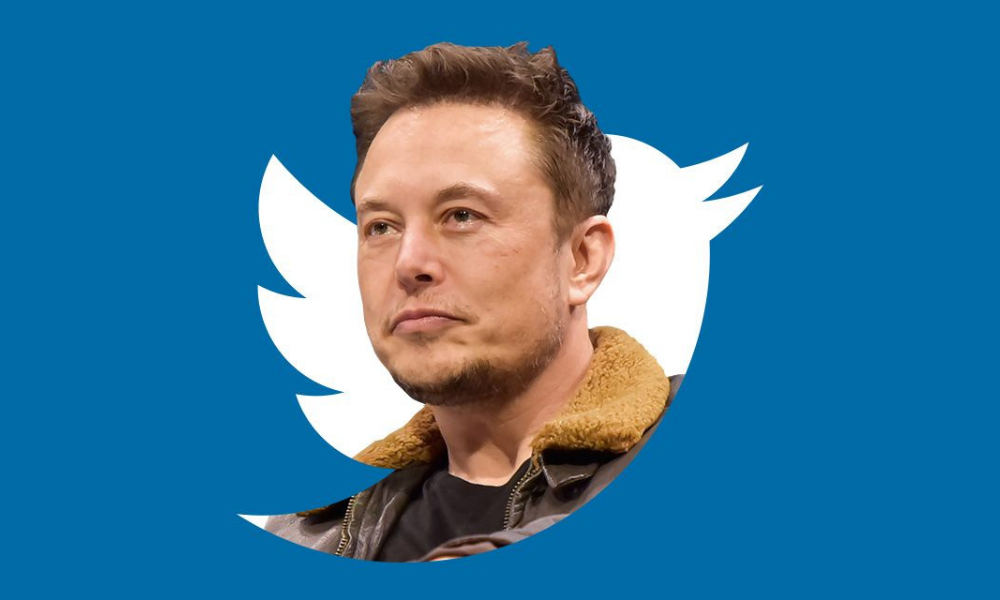
The world’s wealthiest man is now Twitter’s largest shareholder and newest board member. According to SEC filings, Elon Musk acquired 9.2% of Twitter’s common stock and will serve on the social media company's board until his term expires in 2024.
His appointment means he can’t own more than 14.9% of the stock during his tenure and for the ensuing 90 days.
Twitter shares gained 27% last Monday after regulatory findings revealed Musk’s purchase, worth roughly $2.89 billion, based on Friday’s market value. The stock surge, which earned Musk himself $1.1 billion on his new holding, was Twitter’s most significant in a single day since its initial public offering in 2013.
The social media company’s user base has grown steadily for years, but its stock gains have lagged behind its competitors. With a new CEO installed last November, the company set bold goals of $7.5 billion in annual revenue and 315 million daily users by 2024.
But what Musk’s stake in the company and position on the board means for Twitter’s longer-term revenue, user growth, and stock price remains unclear, even if some investors are bullish.
Daniel Ives, an analyst for investment firm Wedbush, told clients in a note, “We believe Musk joining Twitter will lead to a host of strategic initiatives which could include a range of near-term and long-term possibilities out of the gates for the company still struggling in a social media arms race.”
Musk is both a famous user and an infamous critic of the platform. He tweets frequently and boasts 80 million followers on Twitter but has also taken the service to task for “failing to adhere to free speech principles” and charging that it “fundamentally undermines democracy.”
An "anything goes" approach to content moderation may not prove beneficial for Twitter’s bottom line. Other social media platforms that have taken a more hands-off approach to content moderation, such as Parler and Truth Social, have struggled to gain users and be profitable.
Musk tweeted about making “significant improvements to Twitter in the coming months!” But he stopped short of revealing what those changes would be.
Within the last six months, he’s tweeted that the “Twitter algorithm should be open source,” criticized Twitter for introducing nonfungible token profile pictures with engineering resources that he said would have been better spent preventing “crypto scammers” on the platform, and posted a meme with Twitter CEO Parag Agrawal.
And his predecessor Jack Dorsey pasted into a famously doctored photo of USSR dictator Joseph Stalin and secret police official Nikolai Yezhov, presumably as a commentary on the site’s censorship and content moderation policies.
Late last month, Musk polled his followers about Twitter’s adherence to the principle of free speech and hinted about starting a new social media service. Those tweets came after Musk’s Twitter stock buy but before the purchase had been made public.
Shortly after news of the stock acquisition was revealed, Musk polled his followers about creating an editing function for tweets. Agrawal retweeted with the message, “The consequences of this poll will be important. Please vote carefully.”
Free speech and related content moderation questions became heated political topics when former President Donald Trump was banned from Twitter over the violent events at the Capitol on Jan. 6, 2021.
| Revealed In 2022 Best Day Trading Strategies for Beginners |
Meta has faced a similar mix of praise and criticism for its suspension of Trump from its Facebook and Instagram platforms. But Russia’s recent invasion of Ukraine reignited debates about the role of social media in spreading misinformation and propaganda versus its value in aiding vulnerable populations and providing first-hand accounts of events.
This takes place against various congressional proposals to change the laws governing how platforms moderate the content. Those changes are increasingly likely if Republicans regain control of the House and Senate this fall, as they are widely expected to do.
For example, the currently introduced Democratic-supported measures would result in more content deemed “dangerous misinformation” removed. Conversely, Republican proposals aim to curb the platform’s legal protections when removing content they do not wish to host.
That same partisan split is seen in the legacy media coverage of Musk’s new role. The Wall Street Journal’s editorial board described Musk’s new position on Twitter as “a hopeful moment for political speech and debate at America’s increasingly censorious tech giants.”
On the other hand, Molly Roberts, a Washington Post editorial writer, in a column, cautioned against Musk’s inclination to give users more control of the content they see on Twitter, instead of removing questionable content, by warning that “people don’t always pick what’s best for them.
” She advised against “inviting individuals to separate themselves further into political silos or hurl themselves down the rabbit hole of conspiracy theories.”
“It's impossible to know at this early stage how much and what influence Elon Musk will have on Twitter's content policies and practices,” Tech Freedom’s free speech counsel, Ari Cohn, told the Washington Examiner.
He continued, “But this is the way it is supposed to work, rather than the government stepping in to unconstitutionally dictate whether and how a platform must moderate content.”
Patrick Hedger, executive director of Taxpayers Protection Alliance, told the Washington Examiner, “Just as many folks are bound to be upset by the changes Musk forces at Twitter as there are folks unhappy with the status quo.”
Hot Topics
Warren Buffett’s Berkshire Hathaway Buys $4.2bn Stake In HP
Is Forex Trading Real Or A Scam?
Economist Claims There's A 90% Chance US Stock Market Sunk.
He added, “What is and is not acceptable speech is largely in the eyes of the beholder, which is why such issues are relegated to boardrooms, not legislatures.” Cohn reassured, “Private pressure to change content policies is part of the marketplace at work, and it's not limited to ownership. It can be exercised by users, too.” Source: Washington examiner